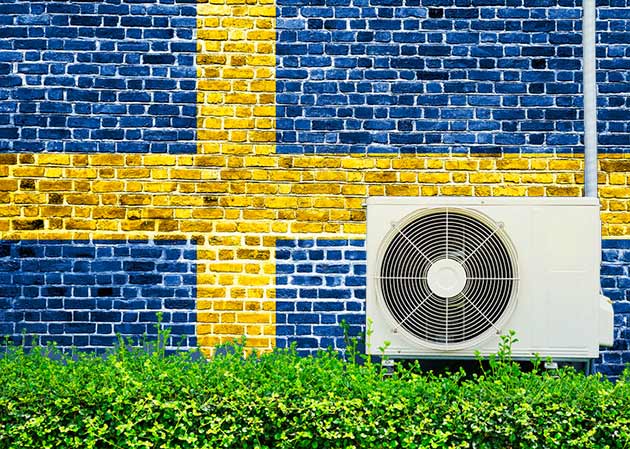Swedes seek F-gas heat pump exemption
5th February 2018SWEDEN: The Swedish heat pump industry is seeking an exemption from the European F-gas phase down, arguing that high refrigerant prices and shortages will impact European environmental targets.
In a letter to the Swedish Environmental Agency, the Swedish heat pump association, Svenska Kyl & Varmepumpföreningen (SKVP), claims that the heat pump industry is in a “vulnerable” situation due to the ongoing phasing-out of the use of synthetic refrigerants. Requesting urgent action, it asks that the heat pump industry be given reasonable time for conversion to alternative low GWP refrigerants.
The association request an exemption under Article 15.4 of the F-gas Regulation EU 517/2014, which allows an exemption from the quota for up to four years for applications, products or equipment, where alternatives are not available, or cannot be used for technical or safety reasons and/or where a sufficient supply of HFCs cannot be ensured without entailing disproportionate costs.
SKVP says it has always supported the principles of the phase out and was aware that this would lead to a lack of access to F-gases with subsequent price increases. “However, recent developments have made us very concerned about the possibilities fulfilment of both Swedish and European environmental and climate goals,” the letter states.
Like the rest of the air conditioning and refrigeration industry, heat pump manufacturers have been investigating alternatives but most low GWP refrigerants are flammable to a greater or lesser extent, and with limited applications under current building rules and industry standards.
“Market prices for F-gases have risen sharply during the year, in some cases with upwards 1000%,” says the letter, signed by SKVP CEO Per Jonasson. “Nevertheless, it has been found that most players in our industry, from manufacturers, through wholesalers to installers, are increasingly unable to get the required amounts of refrigerant to ensure delivery of equipment and operation of plants.”
The SKVP requests the exemption for products listed in the Ecodesign Directive Lot1 (boilers and heat pumps), as well as Lot2 (water heater and accumulator tanks).
Related stories:
F-gas threatens Euro manufacturers – 4 February 2018
GERMANY: The German air conditioning and refrigeration industry has warned that refrigerant shortages and high prices risk putting European equipment manufacturers at a severe disadvantage in global markets. Read more…








